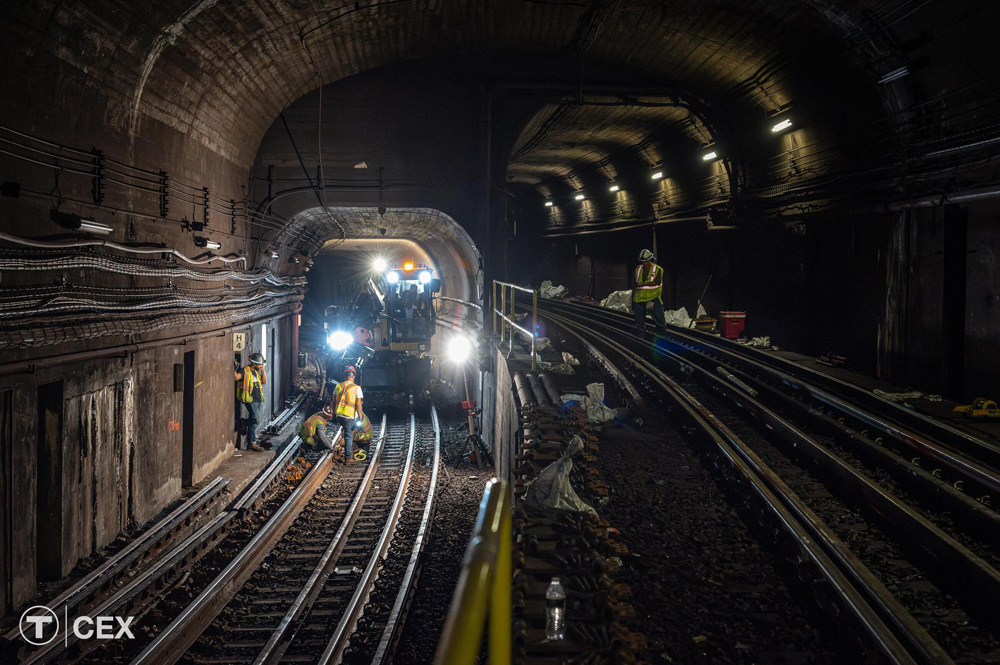From Trains.com: Boston has completed 100% removal of its slow orders. If Boston can.....
MBTA completes work to remove slow orders
By Trains Staff | December 24, 2024
Year-long Track Improvement Project wipes out more than 200 speed restrictions
Massachusetts Bay Transportation Authority maintenance workers replace Red Line track during a shutdown in July. The agency’s Track Improvement Program has been completed after eliminating more than 200 speed restrictions. MBTA
BOSTON — The Massachusetts Bay Transportation Authority has completed its massive Track Improvement Program, announced late last year, which has addressed more than 200 slow orders plaguing the MBTA’s rail transit network.
In a ceremony at North Station on Monday, Dec. 23, MBTA CEO Phillip Eng, Massachusetts Gov. Maura Healey, Lt. Gov. Kim Driscoll, and MBTA workers marked the Dec. 20 completion of a project on the Green Line that removed the last remaining speed restrictions. As of Sunday, Dec. 22, the rail transit network is clear of restrictions; there were 190, covering 31.4 miles — 23% of the system — when the track program was announced in November 2023 [see “
MBTA announces plan to eliminate all slow orders …,” Trains News Wire, Nov. 10, 2023].
“This has been a true team effort, and I want to thank everyone — from planning and construction to those maintaining our system and communicating with the public,” Eng said in
a press release. “All MBTA employees played a vital role in moving us one step closer to a state of good repair, Thank you to our workforce for their diligence, and to our riders for their patience throughout the process. … Our goal is to continue the positive momentum by focusing on accessibility and signal upgrades in 2025, as well as staying on top of preventative maintenance to ensure the T delivers safe, reliable and frequent service to best serve the public today as we build for future generations.”
The project required 23 full closures this year on portions of the transit system’s four lines, ranging from a weekend to several weeks. The work saw the MBTA install more than 250,000 feet of new rail and approximately 38,000 ties; it also included more than 15,400 feet of full-depth track reconstruction and almost 325,000 feet of tamping. The result, the MBTA says, is reductions in round-trip travel times ranging from 4 minutes on the Blue Line to nearly an hour on the Red Line, saving heavy riders a collective 2.4 million minutes per weekday.
“We know there is still work to be done,” Healey said. “We’re still going to invest in the T, and Phil and the team are going to continue working every day to deliver the world-class service that Massachusetts deserves.





